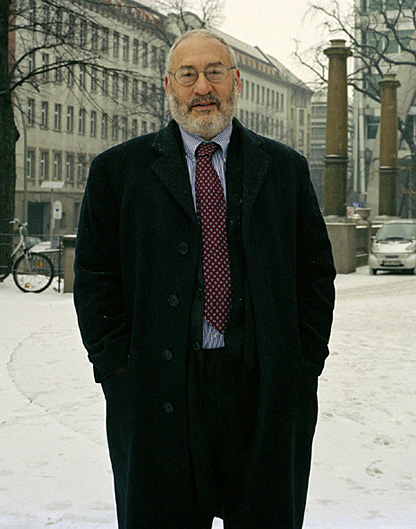

I suppose I could trace my awareness for these issues back to where I grew up - in Gary, Indiana, a steel town which was very marked by periodic unemployment, high levels of inequality, poverty and discrimination. But I think that I had other telling experiences while I was at the World Bank. There I got a chance to see both the inequality and the poverty around the world, and also the inadequacies of the way the issues were being approached in many circles. Under the name of economics, ideas were pushed that were not good economics, that were based on theories that were outdated, on invented assumptions, like for instance perfect information and perfect markets, that were completely inappropriate for developing countries. And the lack of concern for these developing countries, combined with the arrogance with which they asserted their solutions, obviously gave rise to a reaction to try to do something about it. … Joseph Stiglitz, economist, born 1943, USA Joseph Stiglitz is a professor of economics and finance at Columbia University in New York. He is an internationally known critic of current economic politics … From 1997-2000 Stiglitz was chief economist and senior vice-president of the World Bank … With his extensive work Stiglitz provided a large contribution toward explaining the circumstances under which the markets perform poorly and how specific interventions by governments can improve their functions. His knowledge has changed the thinking of economists about the markets. He has received many prizes and acknowledgements for his work, among them the 2001 Nobel Prize for Economics. |
| Joseph Stiglitz, 2004 interview on/off << 03/10 project description >> |